Military announces Burkina Faso takeover on live TVpublished at 18:54 GMT 24 January 2022
An army officer says the military have seized power and overthrown President Roch Kaboré.
Read MoreAn army officer says the military have seized power and overthrown President Roch Kaboré.
Read MoreWe'll be back on Tuesday morning
That's all for now from the BBC Africa Live team until Tuesday morning Nairobi time.
There will be an automated news feed until then which will include the results from the Africa Cup of Nations. You can also keep up with events on our website or listen to the Africa Today podcast.
Here's a reminder of Monday's wise words:
Quote MessageA snake has entered a gourd container."
A Luo proverb sent by James Jowi in Kisumu, Kenya.
And we leave you with this photo from northern Mozambique - where heavy rains and strong winds are causing damage ahead of tropical storm Ana which is expected to make landfall imminently:
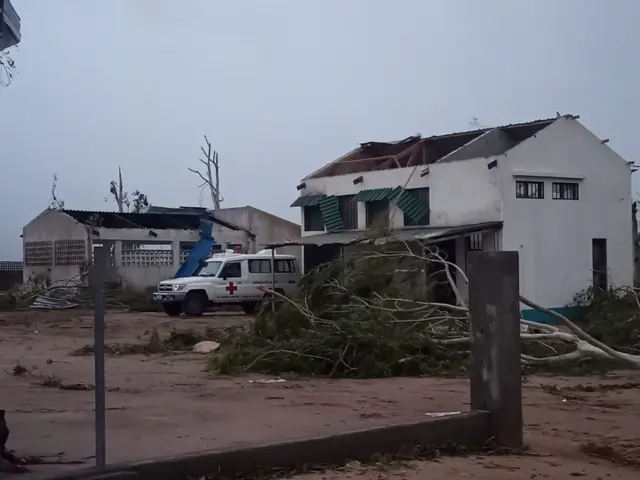 Image source, Image supplied
Image source, Image suppliedThe governing party in Burkina Faso says that what began as an army mutiny is rapidly evolving into a coup.
In a statement, the People's Movement for Progress said President Roch Kaboré and a government minister had survived assassination attempts.
It said the military had taken over state radio and television.
The African Union and the regional bloc Ecowas have condemned the coup attempt and called on soldiers not to harm Mr Kaboré.
His government has become increasingly unpopular for what critics describe as its failure to deal with an intensifying Islamist insurgency.
 BBC World Service
BBC World Service
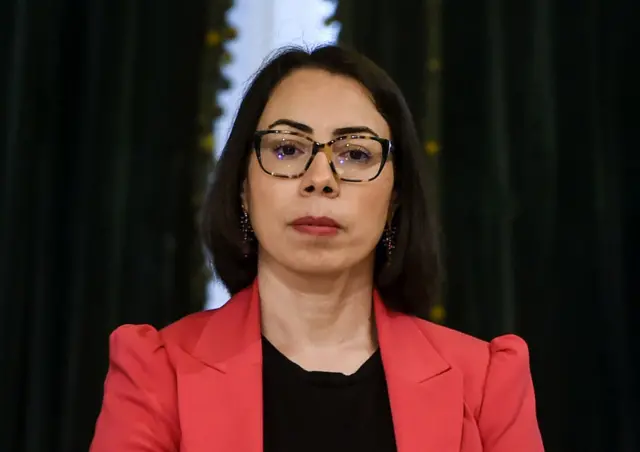 Image source, AFP
Image source, AFPNadia Akacha said she was stepping down because of differences of opinion
The chief of staff to the Tunisian President Kaïs Saïed has said on Facebook that she has resigned.
Nadia Akacha said that she had made the decision over differences of opinion.
There has been no official confirmation as yet.
Ms Akacha has been one of President Saïeds closest aides - and is believed to have played an important role in his decision to suspend parliament and take full executive power last year.
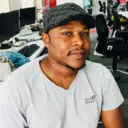 Chiagozie Nwonwu
Chiagozie Nwonwu
BBC News
A video of armed men forcing students to strip naked that is circulating on WhatsApp in Nigeria was actually filmed in Cameroon, the BBC's Disinformation Unit has established.
Many of those sharing the video incorrectly say that the incident occurred in Nigeria's Kebbi state.
In the video, armed men who have been identified as separatists by a source familiar with the region, can be seen shooting into the ground near a group of what appears to be 13 schoolchildren dressed in turquoise blue and navy blue school uniforms.
The incident occurred in January 2022 and the BBC has identified the students as those from a specific secondary school in Buea, one of the biggest cities in Cameroon's troubled Anglophone regions.
Armed separatists want an independent country of Ambazonia for the country's English-speaking populations. The insurgents have used business and school closures to push their agenda, and have also been blamed for mass killing and arson in the region.
In the video, the armed men can be heard ordering the students to "remove their clothes” as they shoot into the air and ground, threatening to kill anyone that disobeys them.
The men speak in the Pidgin English spoken in the Anglophone region of Cameroon.
The BBC could not independently verify if there were any casualties as a call placed to the Cameroon Secondary Education Ministry went unanswered, but a Voice Of America article quoted the ministry as saying none of the students were hurt in the attack, external and their school was closed following the incident.
Towards the end of the video that was clearly shot by the armed men, one of them can be heard saying in Pidgin English "they are the ones going to school in Buea".
Reports indicate that the incident is part of a series of attacks launched by the separatist fighters in the region to disrupt the 2021 African Cup of Nations that is underway in Cameroon - including Buea and Limbe in the Anglophone regions.
Read more: Afcon: Playing football in the shadow of a rebellion
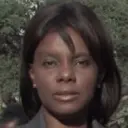 Shingai Nyoka
Shingai Nyoka
BBC News, Harare
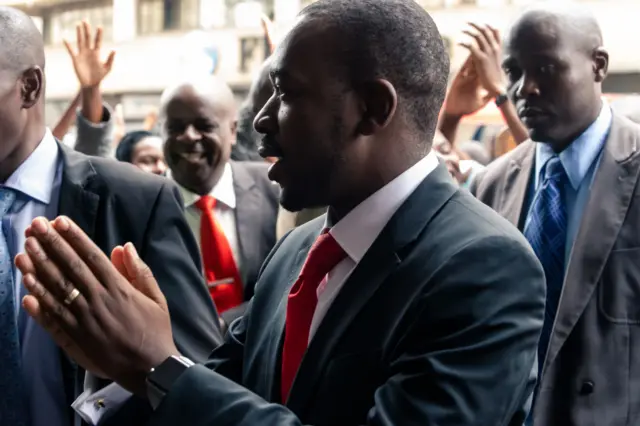 Image source, AFP
Image source, AFP"If you want MDC Alliance, take it," Nelson Chamisa has said (archive photo from 2019)
Nelson Chamisa, once leader of Zimbabwe’s largest opposition party the Movement for Democratic Change (MDC) has formed a new party ending years of leadership struggles that weakened the opposition.
"We have lost everything except ourselves. If you want MDC Alliance, take it," he said as he announced the launch of the Citizen’s Coalition for Change (CCC).
It comes as rival factions inside the MDC Alliance announced last week announced they would contest by-elections scheduled for March.
Mr Chamisa - who won 44.3% of the votes in the 2018 presidential election against incumbent President Emmerson Mnangagwa’s 50.8% - was ousted as the MDC leader after the High Court in 2020 ruled that he had been appointed as acting president unprocedurally following the death of founding leader Morgan Tsvangirai in 2018.
His supporters said the judgement was an attempt by Mr Mnangagwa’s government to usurp the party. Mr Chamisa has refused to recognise Mr Mnagangagwa’s win, accusing him of stealing the election.
The MDC has been wracked by factional fights over the party name, symbols, properties and funding from parliament and many had advised Mr Chamisa to start his own party in the run-up to the 2018 elections.
It is not clear whether CCC will contest by-elections in March, where 28 MP and 105 councillors seats in mainly opposition strongholds are up for grabs. Most of the vacancies arose when rival factions recalled those aligned to Mr Chamisa.
General elections are scheduled for 2023.
 Mary Harper
Mary Harper
Africa editor, BBC World Service
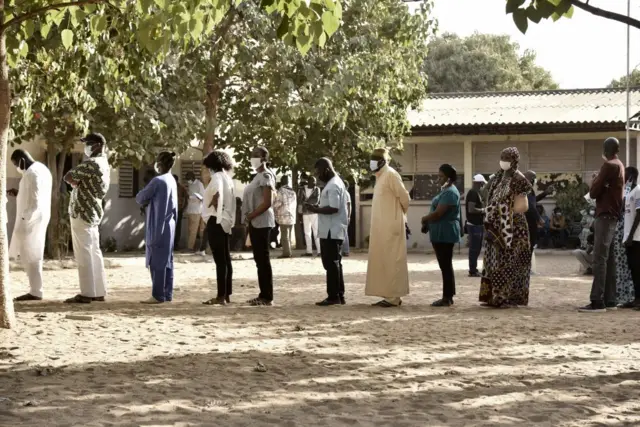 Image source, AFP
Image source, AFPThese polls decide the mayors of more than 500 municipalities and the heads of Senegal's 46 departments.
Senegal's governing party has admitted defeat in the capital Dakar and the southern city of Ziguinchor in Sunday's local elections.
The polls were seen as a test of the government's popularity ahead of general elections in 2024.
Parties linked to two of President Macky Sall's fiercest rivals defeated his Bennoo Bokk Yaakaar coalition - Barthelemy Dias to set to become mayor of Dakar, and Ousmane Sonko the mayor of Ziguinchor.
President Sall has become increasingly unpopular since deadly riots last year over the arrest of Mr Sonko.
Mr Sonko is considered one of the main contenders to replace Mr Sall, who is supposed to stand down after two terms.
Mr Dias is an ally of former Dakar mayor Khalifa Sall (no relation to the president), who was jailed in 2018 on corruption charges that were widely seen as a way of sidelining a political rival.
 Israel Campos
Israel Campos
BBC News
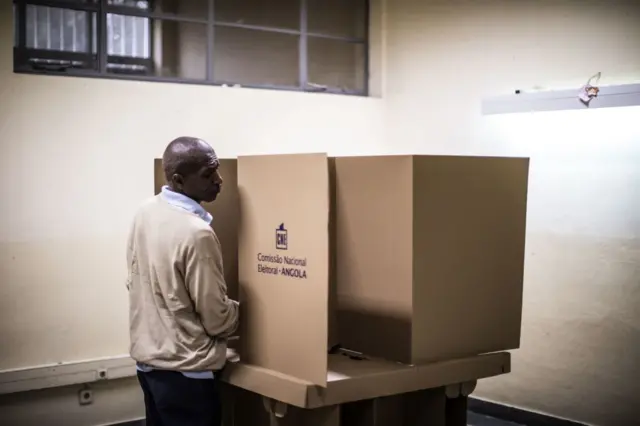 Image source, AFP
Image source, AFPThe last general election was in 2017
After years demanding this right, Angolans living in the diaspora are finally set to vote in the country’s general elections for the first time in August.
People aged 18 and above have until 31 March to register, and the authorities say they hope to register about 450,000 Angolans spread across the world.
Mário Sousa, a 53-year-old who's lived in the UK since 2002, will be one of them. "We are looking forward to seeing how the process goes," he says.
So is Luzia Moniz - an Angolan journalist who has lived in Portugal for 33 years. She says the diaspora voting is "a first step towards what is needed to move the country forward as a democracy".
But Ms Moniz says she is concerned about the vote-counting process, because the ruling MPLA party has told local media that diaspora votes will have to be counted at the electoral commission's headquarters in the capital, external.
"We need more transparency in the voting process. It is not enough for the diaspora to vote. We need to end autocracy," she says.
The international rights index Freedom House says despite some improvements made since President João Lourenço’s election in 2017, Angola continues to score poorly in terms of electoral process, political pluralism and civil liberties, external.
The Gambia beat Tunisia to reach the last 16 of Afcon 2021. Fans back home in Africa's smallest mainland country have continued to celebrate, as the national team's performance inspires the next generation of players.
Video Journalist: David Faye
After gunfire is heard in the capital, President Roch Kaboré's whereabouts are unclear.
Read MoreNigeria interim coach Augustine Eguavoen denies reports he will quit following their exit from the Africa Cup of Nations.
Read More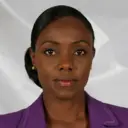 Anne Soy
Anne Soy
BBC News
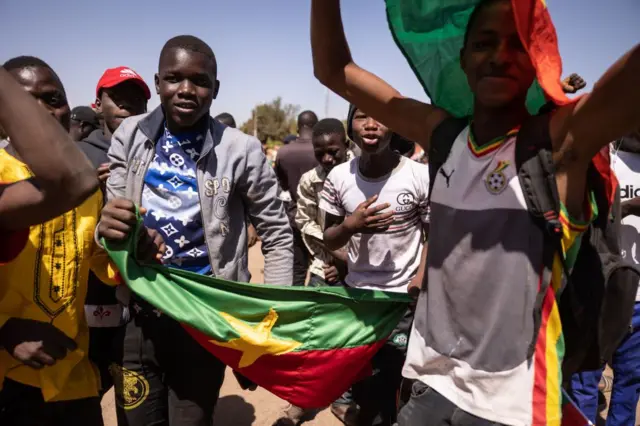 Image source, AFP
Image source, AFPSupporters of Burkina Faso's military have been celebrating the president's reported arrest
Burkina Faso's neighbours say that they are holding mutinying soldiers responsible for the wellbeing of President Roch Kaboré.
The West African regional bloc Ecowas has called Sunday and Monday's events "a coup attempt" - in addition to reportedly seizing the president, soldiers have taken over the state broadcaster RTB.
Those mutinying have demanded changes in the military's leadership and more resources in their fight against jihadists.
It is not yet known if a message published on Mr Kaboré's Twitter account on Monday, calling for the country's democracy to be protected,, external was from the president himself. He has not been seen in public since reports of his detention emerged.
The 15-member group has suspended Mali and Guinea from its membership and imposed sanctions on them after the military in the two countries seized power.
Kalkidan Yibeltal
BBC News
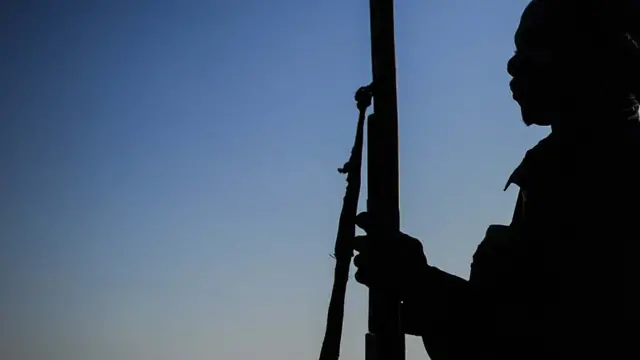 Image source, Getty Images
Image source, Getty ImagesThe government has blamed a group allied with Tigrayan rebels (generic photo)
Six people including five students have been taken hostage in western Ethiopia by an armed group, security forces say.
They were abducted in Bafano, in the country’s largest region, Oromia, on Sunday.
A statement from the government’s intelligence and security task force accused the Oromo Liberation Army (OLA) of abducting the six, who were traveling from the capital Addis Ababa to the city of Asosa, more than 450km (280 miles) to the west.
The OLA has not responded to the accusations but it had previously denied similar allegations.
However in May last year, the OLA said it had “detained” three Chinese mine workers in western Oromia after accusing mining companies operating in the area of displacing farming communities.
The three miners were freed after two weeks in captivity.
The latest incident comes as the fate of 17 students who - in 2019 - were said to have been abducted in western Oromia while travelling still remains unknown.
Related stories:
 BBC World Service
BBC World Service
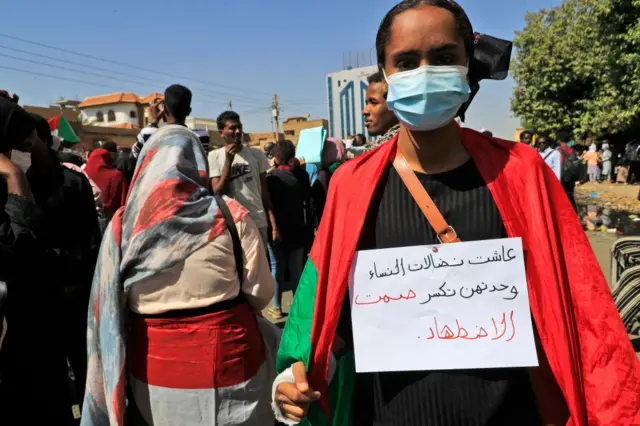 Image source, AFP
Image source, AFP"Long live the struggle of women, they alone can break the silence of oppression," read one person's placard
In another day of pro-democracy protests in Sudan, police have fired tear gas to disperse thousands of demonstrators in the capital, Khartoum.
Other cities, including Wad Madani and Gedaref, have also seen large protests decrying October's coup and calling for a return to civilian rule.
They demanded justice for the more than 70 people who medics say have been killed in earlier rallies, many dying of gunshot wounds.
The Sudanese security forces have repeatedly denied using live ammunition against protestors.
The United Nations has been talking separately to the ruling military council and opposition groups with the aim of restoring a transition to democracy.
More about Sudan:
The Twitter account held by Burkina Faso's President Roch Kaboré has tweeted for the first time since security sources said he was being held by mutinying soldiers.
"We must, at this precise moment, safeguard our democratic achievements," the tweet reads.
"I invite those who have taken up arms to lay them down in the interests of the nation. It’s through dialogue and listening that we must resolve our contradictions".
Allow X content?
This article contains content provided by X. We ask for your permission before anything is loaded, as they may be using cookies and other technologies. You may want to read X’s cookie policy, external and privacy policy, external before accepting. To view this content choose ‘accept and continue’.
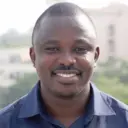 Thomas Naadi
Thomas Naadi
BBC News, Accra
Footage captured the aftermath
Following a deadly explosion last week, Ghanaian authorities in Ghana have shut down Maxam Mining Company Limited - the company responsible for manufacturing, storing, and transporting explosive materials for mining operations in the country.
Ghana's Chief Inspector of Mines has also been suspended.
Investigations are under way, the authorities say, into Thursday's blast near the mining town of Bogoso, that killed at least 14 people and injured dozens of others.
The explosion has raised a lot of questions regarding safety protocols as trucks transport explosive materials on busy roads.
The National Disaster Management Organisation says more than 40 critically injured people are being treated in hospitals, and more than 500 homes have been destroyed.
Government and non-governmental organizations have been sending relief items to survivors.
These photos show the site of the blast in the village of Apiatse before, and afterwards:
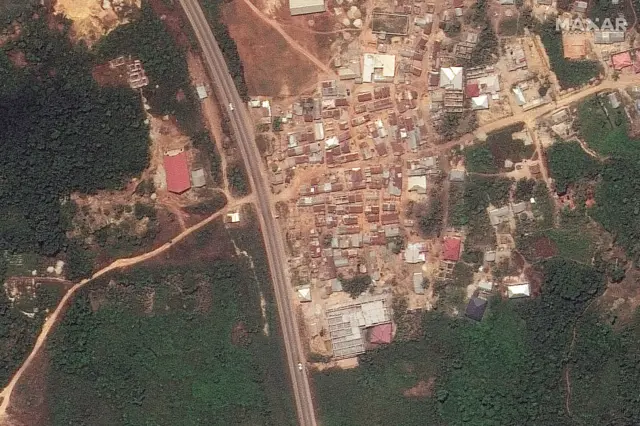 Image source, Maxar
Image source, Maxar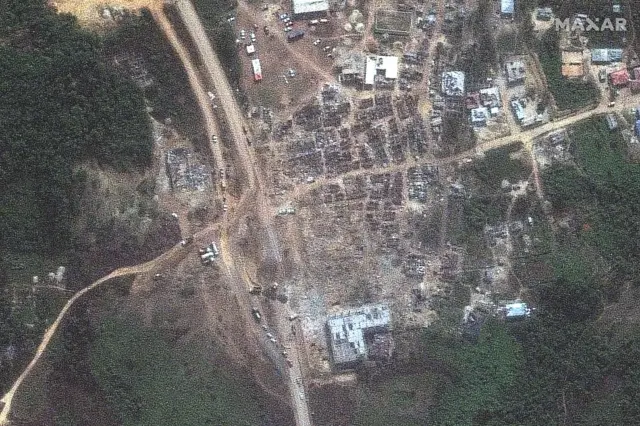 Image source, Maxar
Image source, MaxarComoros goalkeeper Ali Ahamada will miss their Africa Cup of Nations last-16 tie on Monday despite testing negative for coronavirus.
Read MoreBrian Osweta
BBC News, Nairobi
The world will miss the goal of quality education for all by 2030 with sub-Sahara Africa faring the worst of all, according a new study by the UN's education organisation, Unesco.
In the region, millions of children will continue to miss out on school and high-quality learning, the study found.
In sub-Saharan Africa 8% of children of primary school age are predicted to be out of school by the 2030 deadline. This is an improvement on the current figure of 19%.
No region is on track to achieve the goal of universal completion of secondary education by 2030.
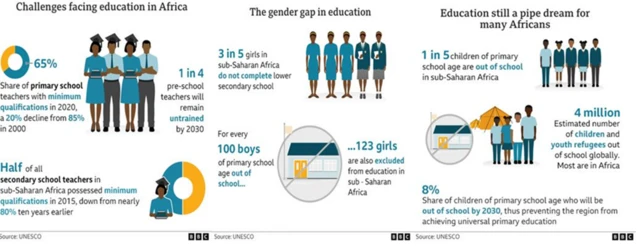
If it can be said that an education system is as good as its teachers, then the report is a wake-up call for leaders in Africa.
Despite the region’s best efforts, over a quarter of pre-primary teachers will remain untrained.
However, the percentage of trained teachers globally is expected to increase between 2015 and 2030 to over 90% at each level of education. The fastest growth is expected at the pre-primary education level, from 70% to 94%.
 Mary Harper
Mary Harper
Africa editor, BBC World Service
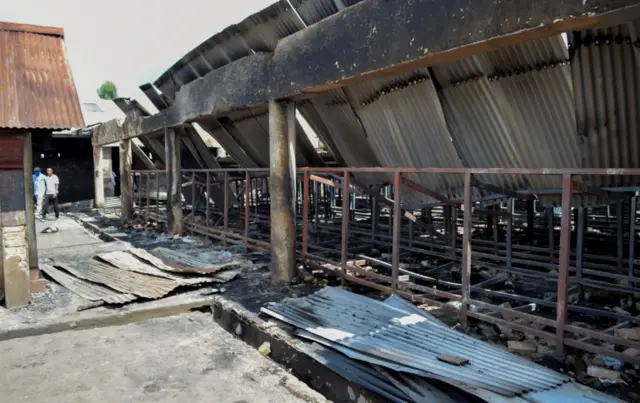 Image source, Reuters
Image source, ReutersHuman Rights Watch believes there may have been hundreds, not dozens, who died
An international pressure group says hundreds of inmates may have died in last month's prison fire in Burundi, and is calling for a "transparent investigation".
The authorities have said no more than 46 people lost their lives.
Survivors told Human Rights Watch the blaze engulfed several prison blocks at the jail in the capital, Gitega.
The emergency services did not arrive until two hours after the fire started.
Eyewitnesses said the dead were buried in mass graves with no attempt to identify them.
Human Rights Watch said the jail was holding more than three times its maximum capacity of inmates, many of whom were political prisoners.
 BBC World Service
BBC World Service
 Image source, Getty Images
Image source, Getty ImagesBrendan Taylor retired from international cricket last year
The former captain of the Zimbabwe cricket team, Brendan Taylor, has admitted being approached by Indian businessmen to fix matches for money.
He says he faces a "multi-year" ban after delaying for four months before reporting this to the ICC, the governing body of world cricket.
In a Twitter statement, Taylor describes being videoed by the businessmen using cocaine at a dinner and then being blackmailed to fix matches for them.
Allow X content?
This article contains content provided by X. We ask for your permission before anything is loaded, as they may be using cookies and other technologies. You may want to read X’s cookie policy, external and privacy policy, external before accepting. To view this content choose ‘accept and continue’.
He adds that he is to seek treatment to "get clean" and get his life back on track.
Taylor retired from international cricket last year.